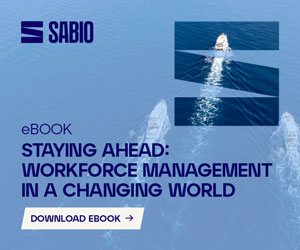It occurs to me that customer-centricity has become a religion in many ways. And as such it is characterised by a particular philosophy-ideology, rituals and practices. We have many books-articles published on customer-centricity, customer experience, CRM, customer service, etc. We have many gurus expounding their particular philosophy of customer-centricity. We have many consultancies pushing their flavour of customer-centricity and associated paths to customer-centric nirvana. We have the IT industry pushing an array of systems under the customer-centricity and customer experience banners. And we have many conferences centred on the topic of customer-centricity in one or more of its flavours.
What difference does all this make when it comes to lived experience – the real world of business? I say that customer-centricity has become the new game to play: a charade. And in this sense, customer-centricity shows up for me as a Sunday morning religion. This was brought home to me, recently, when listening to the advice given by an engagement manager to a project manager. It went along the following lines:
“Looks like you have a happy customer. Ring up the customer and ask if he would be willing to give us a 10. If he is willing to give us a 9 or a 10 then send him the NPS survey.”
Am I faulting the engagement manager? Not at all. The engagement manager through his instruction has simply made visible the game that has become the norm under the religion of customer-centricity. How many Christians who turn up on Sunday morning are actually Christians? By that I mean how many embody-live the principles-values-practices embodied by Jesus Christ? Please note, I am not attacking Christianity. I find that the same has occurred as regards Islam: rare is the person I encounter who calls himself a Muslim and shows up for me as being as such.
I ask you consider, be with, reflect on the following sage speaking by a sage:
The intricate maze of philosophy of different schools claims to clarify matters and reveal the Truth, but in fact they create confusion where no confusion need exist. To understand anything there must needs be the understanding being. Why worry about his bodies, his ahankar, his buddhi, creation, God, Mahatmas, world the not-Self at all? Why not remain yourself and be in peace? Take Vedanta, for instance: it speaks of the fifteen pranas, the names and functions of which the student is asked to commit to memory. Will it not be sufficient if he is taught that only one prana does the whole work of maintaining life in the body? Again, the antahkarana is said to think, to desire, to will, to reason, etc. Why all these details? Has anyone seen the antahkarana, or all these pranas? Do they really exist? They are all conceptual divisions invented by teachers of philosophy by their excessive analysis. Where do all these concepts end? Why should confusion be created and then explained away? Fortunate is the man [person] who does not lose himself in the labyrinths of philosophy, but goes straight to the Source from which they all rise.
– Ramana Marashi
I say put aside customer lifetime value. I say put aside share of customer wallet. I say put aside big data. I say put aside data mining and predictive analytics. I say put aside CRM and CRM systems. I say put aside Voice of the Customer and Customer Experience. I say put aside customer loyalty programmes….
Now ask yourself some really hard questions and answer truthfully:
- Am I/ are we willing to put the needs-concerns-wellbeing of the customer at least on a par with our needs-concerns-wellbeing?
- Am I/are we willing to sacrifice revenues and profits (‘bad profits’) that I am/we are making from taking advantage of our customers?
- Am I/are we hungry (passionate) about coming up with products-services-solutions-experiences that simplify and enrich the lives of our customers?
Author: Guest Author
Published On: 19th Mar 2014 - Last modified: 5th Feb 2019
Read more about - Archived Content







Thank you for like a very good tips. It will help a lot.